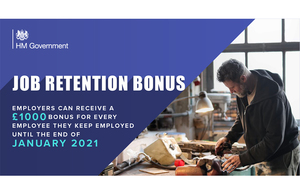Thousands of veterans secure meaningful employment in civilian roles
Ex-Forces are one of the largest sources of talented potential employees in the country. Service leavers and veterans are highly trained and skilled individuals who have worked within a motivated culture with exceptionally strong teamwork. RFEA work with 20,000 service leavers and veterans every year, supporting employers to recruit when they need high volumes of people to join their organisation.
The unique Ex-Forces Programme, which recently received a significant boost from ABF The Soldiers’ Charity, of £267,000, is available to all service leavers, reservists and veterans, irrespective of circumstances, rank, length of service or reason for leaving. It offers regionally based, comprehensive career advice and job opportunities.
Brigadier (Ret’d) Robin Bacon, Chief of Staff, ABF The Soldiers’ Charity:
Meaningful employment plays a major role in ensuring veterans and their immediate families can live a life of independence and dignity and we see RFEA’s Ex-Forces Programme as playing a vital part in helping them achieve that. We are delighted to be able to contribute to such a worthwhile initiative that reaches so many.
RFEA understands the needs of service leavers, including the unique challenges they face during the transition from military to civilian life.
Mark Lightowler, a former Army Captain, secured a lucrative Operations Manager role after seeking help from RFEA:
From the very first call I had from RFEA it was so very refreshing to hear and to speak to someone who spoke ‘the language’ and understood the needs and challenges of veterans looking for work in a civilian world. My Advisor is a very personable individual who offered sound advice, however, by far the most important attribute that RFEA demonstrated was taking the time to care, to really care.
Alistair Halliday, RFEA’s Chief Executive:
The Ex-Forces Programme is there for all veterans and reservists who need help to find work once they have left the Armed Forces. This means that later in life, if veterans face redundancy, underemployment, or difficulties fitting into a new work culture, we can help them.
Serving in the armed forces means shorter relevant industry experience and less understanding and practice at the recruitment process than the civilians veterans are competing with for jobs. Our programme provides an essential safety net beyond transition from the armed forces and we are so grateful to ABF The Soldiers’ Charity for the continued support we have received to enable RFEA to carry out this essential work.
Find out more about the Ex-Forces programme and why hiring veterans is good for business.
